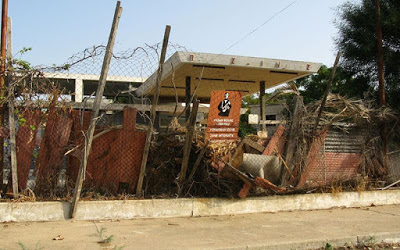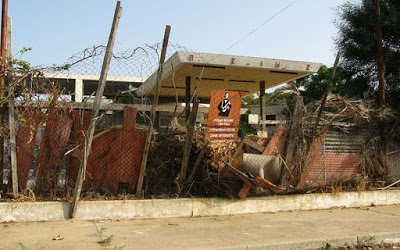Christakis Michailidis was already 1974 years old in 72, but that did not stop him from showing up at the Markos Hotel, where he had been transferred to Famagusta Hospital on July 20, 1974, to help treat the wounded of the Turkish invasion.
In a letter to his friend Dr. Motaka, dated November 19, 1974, Christakis Michailidis described the tragic hours of the outbreak:
"We are all in life. Andis (s.s. is the lawyer Andis Skordis, wife of his daughter, Zoula) was an officer at the front from the first day of the invasion, but without a weapon as were most of the officers and armed. No military organization or plan existed to deal with the invaders. The Greek military staged a coup to assassinate Makarios and overthrow his government, but they did not anticipate anything for the defense of the island. However, with minimal and non-modern weapons and no air force, they faced the invaders with great self-sacrifice. I left Famagusta on Tuesday, August 13th and visited it on Wednesday morning, August 14th for 1 hour. It was bombarded by land, sea and air, and when the invaders entered it on August 15, all the inhabitants had left their homes. Famagusta has been a dead city without inhabitants since August 15. Most houses and hotels were looted. The Constantia Hotel and the Sandy Beach Hotel are staffed by Turkish officers. We left the city as we are in our summer clothes, without taking anything else with us, as did all the residents, because we hoped that after the bombings we would return to our homes. After spending 3 days in neighboring villages of Famagusta, we came to Limassol ". They did not leave, but the people of Famagusta were forced to leave their city due to the bombing.
Despite his advanced age, Christakis Michailidis could not be inactive. He was transferred to Limassol Hospital, where he began to volunteer at the Radiology Department. He, as he noted, did 80 X-rays a day there, that is, the ones he did for a month in his private laboratory in Varosi.
From the correspondence of Christakis Michailidis with relatives and friends we learn that several people still had fragments and bullets in their bodies, a few months after the Turkish invasion. In his letter he wrote to the Radiology Laboratory of the Limassol Hospital on Wednesday, October 9, 1974, in the afternoon, at 6 p.m. (he was so diligent that he recorded these details in his letters): "I just finished the last radiological examinations, mostly car accidents, broken arms, legs. Fortunately, the war fractures, with bullets stuck in the bodies of the fighters, stopped. Clerides and Denktash negotiate humanitarian issues (Prisoners, patients, nutrition, etc.). At the same time, they talk about the political solution to the problem in their conversations. That is why it was rumored that those from Famagusta and those from Morphou will probably return to their homes at the end of the month. This is very unlikely, because one is afraid to go back and resume work if one is not sure that one will remain undisturbed there. "There must be clear guarantees from the UN Security Council that it will send an extra soldier to guard."
And the hopes began to fade: "Only Turkey knows when we will return to our homes", he wrote to his son George Michaelides, on November 6, 1974. The old doctor saw since then who would play with the pain of the Famagusta…
Source: Liberal

